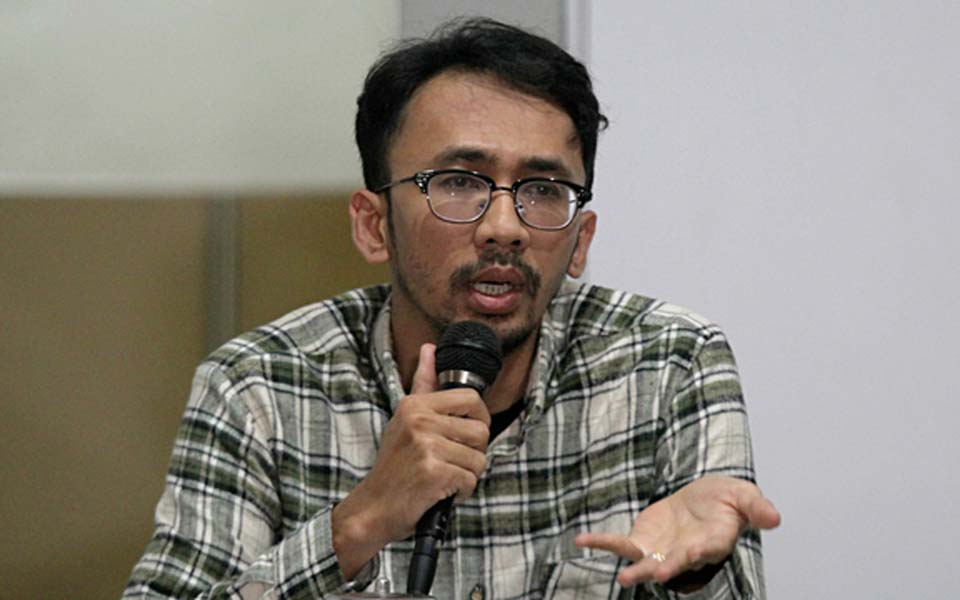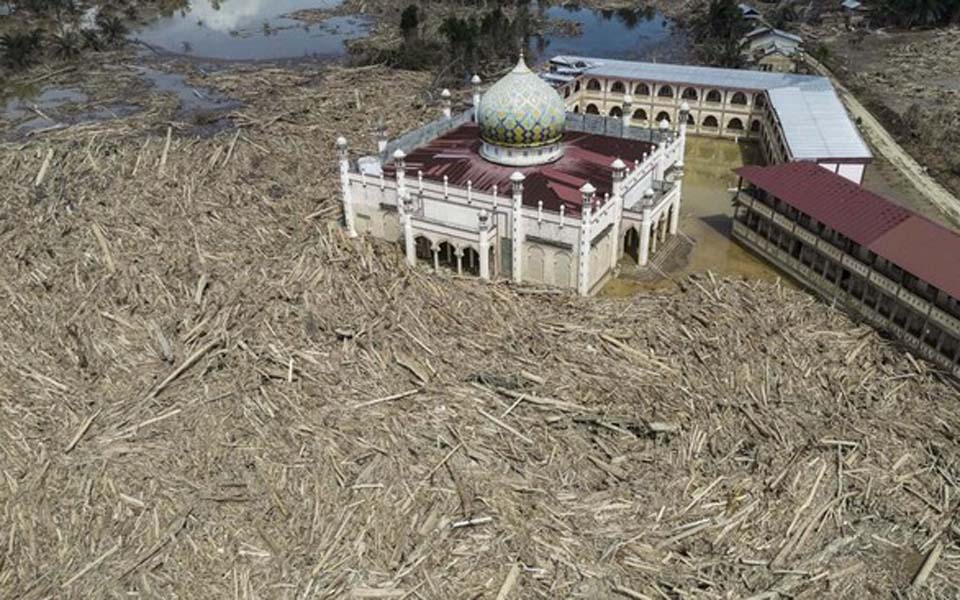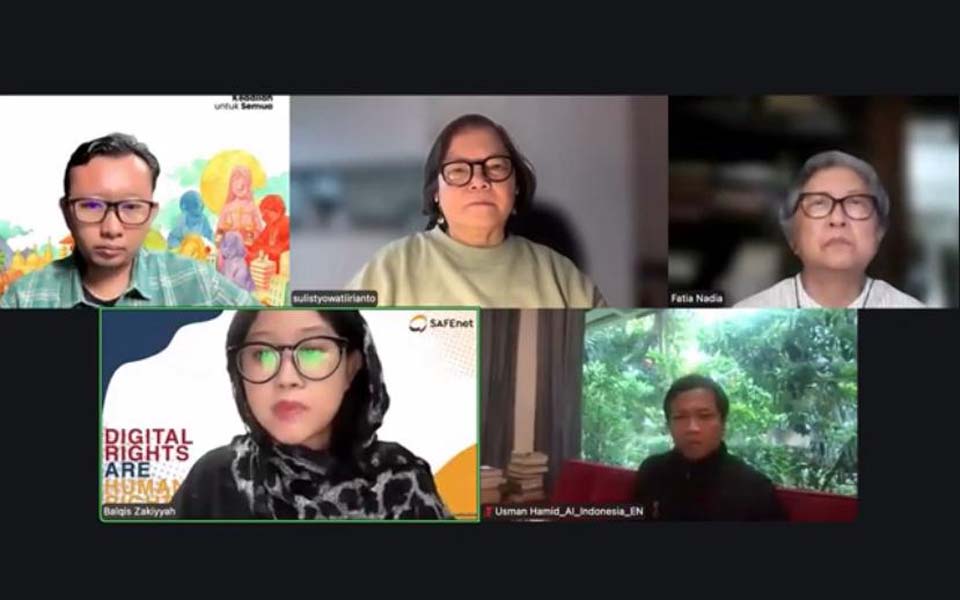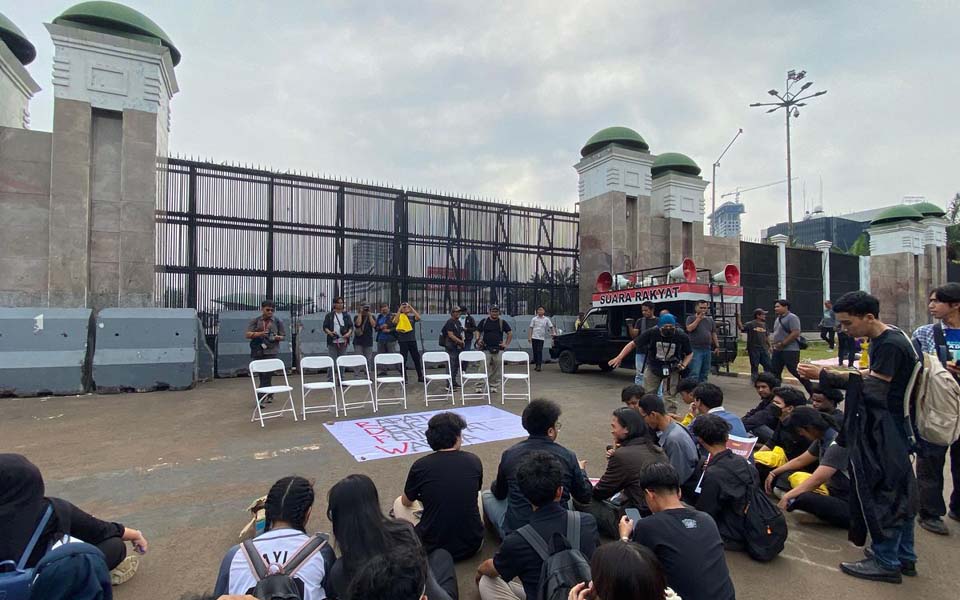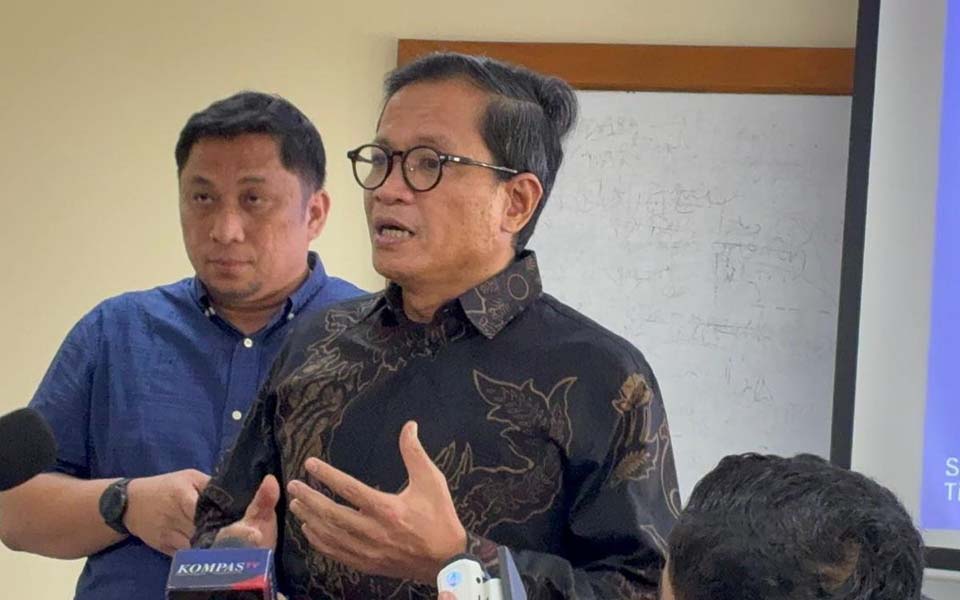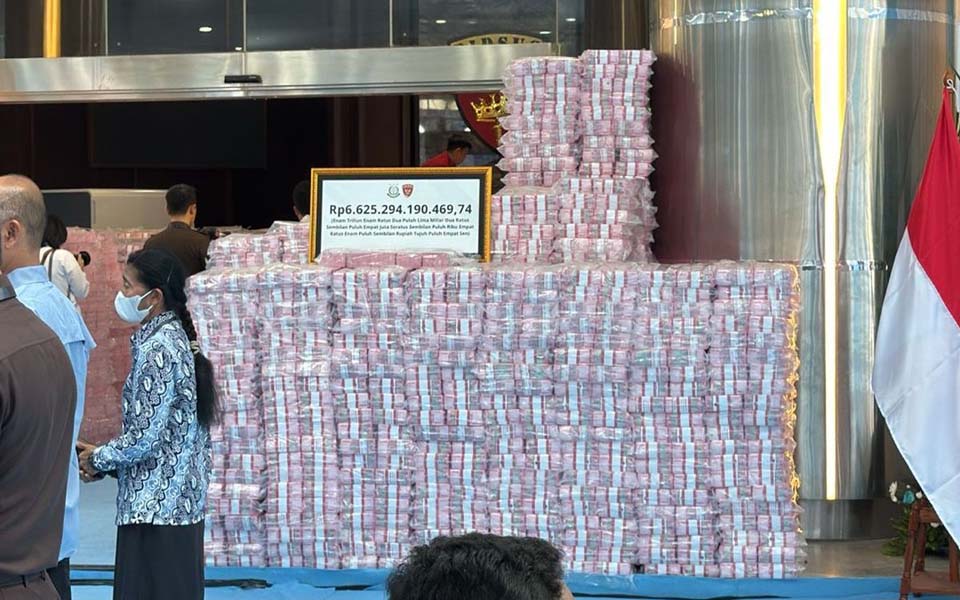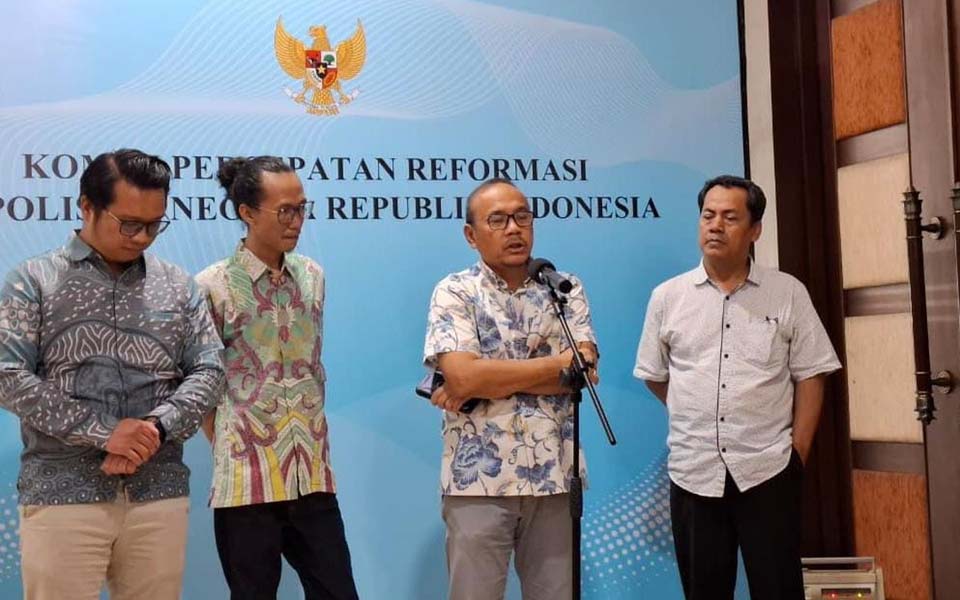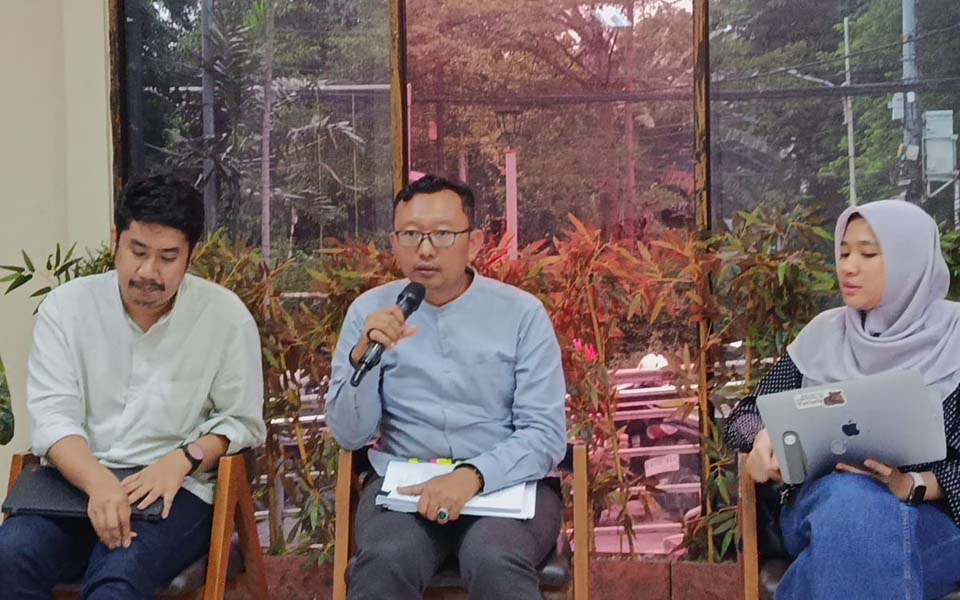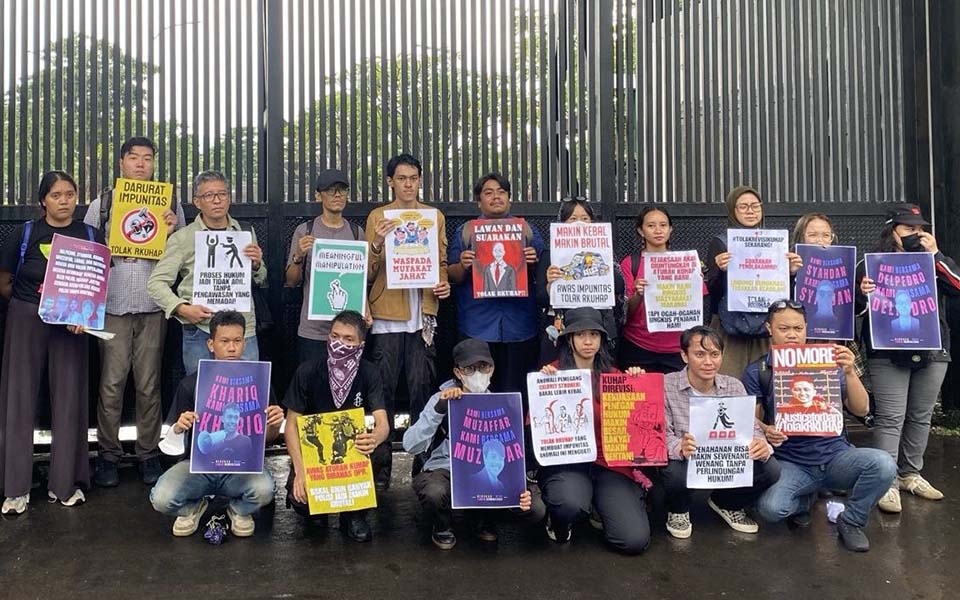Jakarta – The Civil Society Coalition has strongly condemned the legislation process related to changes or revisions to the Criminal Procedure Code (RKUHAP) which are still considered problematic, both in terms of substance and the process its preparation.
The coalition also held a protest action in front of the parliament building in Jakarta demanding that the House of Representatives (DPR) Commission III hold a debate or an audience with them there on Monday July 14.
From the ongoing legislation process they are of the view that material of the RKUHAP actually threatens the rights of citizens, strengthening the repression of the state, and shows the weakness of the government's commitment to the principles of democracy and the rule of law.
Indonesian Legal Aid Foundation (YLBHI) Deputy Chairperson Arif Maulana said the poor investigation system in Indonesia was illustrated by the current Criminal Procedure Code (KUHAP) and it is feared that it could be worse if the RKUHAP was passed.
"The 2024 Rule of Law Index said that the investigation system in Indonesia was one of the systems that is bad and this is depicted in the KUHAP. In practice, we see cases of wrongful arrest, torture, criminalisation, which have occurred and claimed victims. The YLBHI itself recorded that in 2019-2025 there were 154 cases of criminalisation that ensnared victims from various backgrounds. The number of victims reached 1,097 people", said Maulana in a discussion on the social media platform X on Sunday July 13.
"Meaningful participation has been ignored. Meaningful participation cannot just be interpreted as being invited, heard, that it. But the input is not considered, and giving an explanation of how they consider the input", asserted Maulana.
During the same discussion on X, a representative from the Institute for Criminal Justice Reform (ICJR) said they believe the discussions on the RKUHAP have been too fast and do not guarantee the protection of citizens' rights.
The same thing was conveyed by a representative of the Indonesian Judicial Research Society (IJRS). They questioned the logic of discussing 330 articles in just two days. Whereas in countries like the Netherlands, its KUHAP consisting of 600 articles has been revised more than 400 times in 100 years.
They also highlighted several articles that were considered confusing and have the potential to be misused such as Article 93 paragraph 5 which states that a suspect could be detained if they do not want to cooperate with law enforcement officials.
"It is not clear what the meaning of 'cooperate' is. Doesn't the suspect or the defendant have the right of refusal? But if they don't want to cooperate with law enforcers officers that can be used as a basis to detain them. This doesn't make sense", continued the IJRS representative.
Criticisms also came from the Indonesian Centre for Environmental Law (ICEL) which highlighted that there are no rules regarding the mechanism of "burying" a case in the RKUHAP, even though this is known in environmental law and is important to protect environmental fighters and indigenous peoples.
The Coalition is also urging the DPR and the government to open space for public participation that is meaningful in the discussion of draft laws, especially the RKUHAP.
They stressed that the KUHAP is the foundation of criminal law enforcement in Indonesia, so the revisions should not be done in a hurry and without transparency.
If it is approved in this condition, the public is worried that the KUHAP will actually strengthen arbitrary practices, harm victims and weaken the accountability of law enforcement officials.
Earlier, the chairperson of the RKUHAP Working Committee (Panja) as well as the chairperson of the DPR's Commission III, Habiburokhman, scolded those who have made the criticism of the process of discussing the bill.
Habib, as he is known, invited the public to directly to assess the process of discussing the draft Criminal Procedure Code or RUU KUHAP saying that right from the beginning the discussions have involved a great deal of public participation.
"So this, please let the public make an assessment, is we who are talking bullshit or they who are talking bullshit", said Habib at a press conference following a discussion on the RKUHAP Problem Inventory List (DIM) at the Commission III on Thursday July 10.
The deputy chairperson of President Prabowo Subianto's Greater Indonesia Movement Party (Gerindra) even claimed that they invited those who submitted criticisms about the discussion of the RKUHAP after a public hearing (RDPU) was held. He also mentioned that a number of articles in the revisions were proposals from the public. (kay/kid)
[Translated by James Balowski. The original title of the article was "Kritik Keras Koalisi Sipil: RKUHAP Perkuat Represi Negara".]





